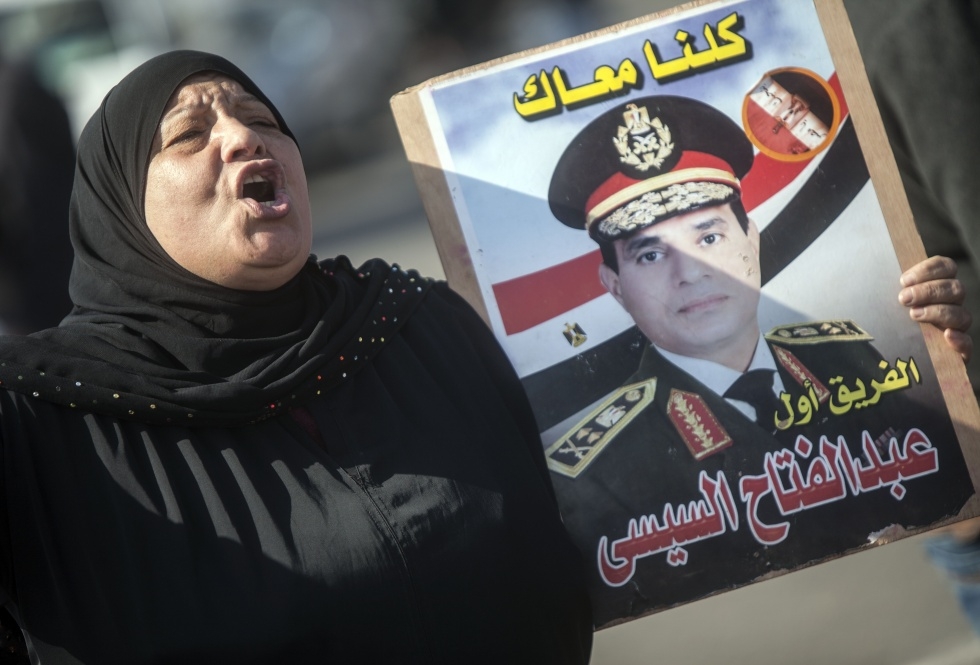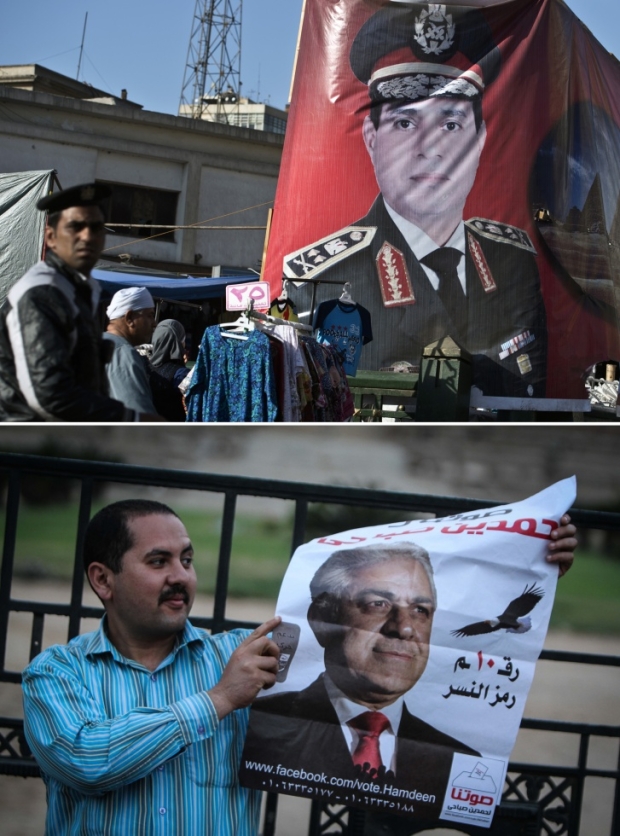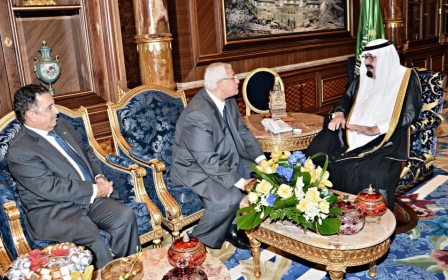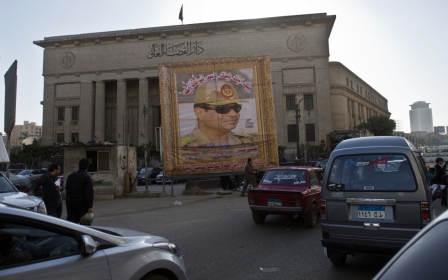Egyptian presidential campaign launches

After months of preparation and expectation, campaigning for the May presidential election officially got under way on Saturday, even as a deadly bombings underscored tensions ahead of the vote.
The interim government insists that the 26 - 27 May presidential poll will restore elected rule following the July overthrow of the Muslim Brotherhood candidate Mohamed Morsi but the poll has become increasingly controversial in recent months.
Wide scale crackdowns on opposition forces have seen scores arrested and imprisoned, hundreds sentenced to death and leading political movements banned.
Former army chief Abdel Fattah al-Sisi is widely expected to win the vote, although he has not yet unveiled his election programme, which his campaign officials say has been purposefully delayed until the official campaigning period began. All eyes will now be on Sisi’s economic reforms that could see him end Egypt’s extensive subsidies system for things like food and fuel in a bid to revive the flailing Egyptian economy, but which could cause resentment among many of his core supporters. The campaigning is scheduled to end on 23 May.
Sisi is now scheduled to give his first interview in months on Monday to two Egyptian television anchors, their broadcasters announced in a statement.
New MEE newsletter: Jerusalem Dispatch
Sign up to get the latest insights and analysis on Israel-Palestine, alongside Turkey Unpacked and other MEE newsletters
His only rival, leftist Hamdeen Sabbahi, has emerged as an opposition figure claiming to represent the ideals of the 2011 uprising that overthrew veteran strongman Hosni Mubarak.
As the campaigning kicked off on Saturday, Sabbahi denounced what he called the continuation of abuses that marked Mubarak’s 30 year rule.
"The policies that were present under Mubarak are the same policies present now [under the military-installed regime],” Sabbahi told a campaign rally in the southern city of Assiut.
"Our goal is to gain the people's trust to change the policies of corruption and tyranny and poverty," he said in remarks broadcast live on television.
Sisi is popular among many Egyptians, who opposed Morsi’s rule and believe that Sisi can restore stability. His opponents, however, fear that he is likely to attack many freedoms.
Sabbahi, who came third in the 2012 election which Morsi won, is seen as a long shot in the face of a groundswell of support for Sisi, although he has good links with Egypt’s still relatively strong labour movement that was behind a rash of strikes earlier this year.
"I promise to work hard, and I ask everyone to assume responsibility with me. Building this nation is the responsibility of us all," he said on Twitter Saturday.
"Stability, security and hope for Egypt will be achieved through our will and capabilities."
Crackdowns
Sisi’s Twitter remarks came a day after two separate bomb blasts killed a policeman in Cairo and a soldier in the restive Sinai Peninsula.
The north of the peninsula bordering Israel and the Gaza Strip has become a haven for militants, who have launched a low level insurgency.
Authorities have linked the Muslim Brotherhood to the unrest and cracked down harshly on the now outlawed group, although the Muslim Brotherhood has consistently denounced the violence and denied any links to peninsula’s armed groups.
Waves of mainly Brotherhood supporters have been arrested or killed, with at least 1,400 people, mostly Islamists, killed in street clashes, including hundreds on 14 August alone. Thousands have been jailed and placed on trials and on Saturday a further 102 Moris supporters were jailed for 10 years for a range of charges including illegal assembly with the intent of assault and attempted murder. Morsi is also in jail, facing charges in three separate trials including inciting violence and murder and supporting terrorism.
Vote amid crackdown
The crackdown has increasingly been extended to target secular activists, who supported Morsi's overthrow but have since turned on the army-installed military as it tightens the clamps on dissent.
Earlier this week, a court banned the April 6 movement, which spearheaded the revolt against Mubarak. Its leader Ahmed Maher is already in prison for participating in an unlicensed protest last year. The same day another court sentenced 683 people to death including the Brotherhood's supreme guide Mohamed Badie.
Both moves have won condemnation from the international community, although the EU refused to heed April 6 calls to not send its observers to monitor the May vote.
Al Jazeera trial
Saturday also saw three Al Jazeera journalists, now in prison for almost five months, return to court to face charges of inciting violence and fabricating news reports and aiming to tarnish “Egypt’s image abroad." A fourth Al Jazeera reporter has been in prison for more than six months and has been on hunger strike since January.
The 20 defendants in Saturday’s trial are now expected to return to court on 15 May.
Egyptian prosecutors have also charged the defendants – including eight in custody and 12 in absentia – with belonging to a "terrorist" group and providing it with money, information and equipment.
They have since been accused of broadcasting "unlicensed" material for Al Jazeera from a hotel in downtown Cairo. The Doha-based news network emphatically denies the allegations and is now suing the Egyptian government for $150m in damages.
The military-backed government has repeatedly accused Al Jazeera of harbouring bias in favour of ousted president Mohamed Morsi, an assertion the network rejects.
Middle East Eye delivers independent and unrivalled coverage and analysis of the Middle East, North Africa and beyond. To learn more about republishing this content and the associated fees, please fill out this form. More about MEE can be found here.




